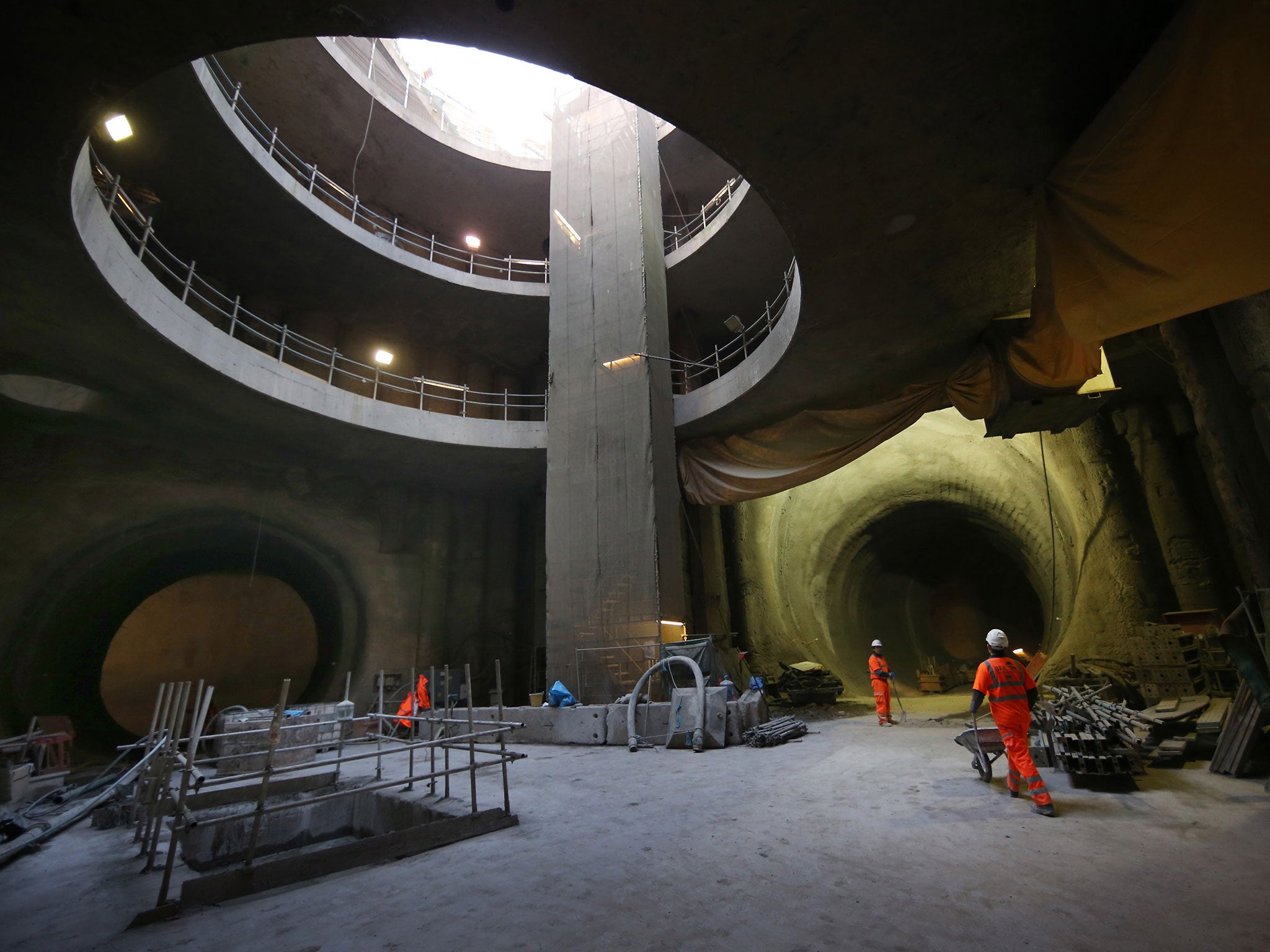Political wrangling is to blame for UK’s 'productivity slowdown', MPs told

Warring politicians have contributed to the UK’s “productivity slowdown”, according to evidence passed to the House of Commons’ Business Select Committee.
The Civil Engineering Contractors Association (CECA), which represents companies that build and maintain transport and utility networks, an industry that supports 200,000 workers, said “a lack of cross-party support for investment in strategic projects” has hindered productivity.
CECA cites major projects like Britain’s only high speed rail link, HS1, from London’s St Pancras station to the Channel Tunnel on the Kent coast, and Crossrail, London’s new £14.8bn railway, as major projects that “lacked long-term strategy” and took too long to develop.
The group also points to the Government’s current problems in deciding whether to build additional runways at Heathrow or Gatwick in the face of opposition within the Conservatives and other parties as reflecting this “challenge”.
The evidence adds: “These delays, mainly caused by a lack of political consensus, have been costly for the taxpayer and UK plc.”
Despite the economic recovery, including falling unemployment, David Cameron has overseen stubbornly low levels of productivity.
Incredible pictures of the Crossrail project
Show all 6Output per worker grew 0.3 per cent in the first quarter this year, but slipped 0.2 per cent in the last three months of last year, according to the Office for National Statistics (ONS).
Labour’s Iain Wright, who was elected chairman of the cross-party Business Committee shortly after the general election in May, has launched an inquiry into the Government’s productivity plan.
This is the committee’s first major investigation of this five-year parliamentary term, and on launching it in the summer Mr Wright said: “Productivity is the pressing economic challenge of this Parliament and tackling the productivity gap is crucial to the UK’s economic competitiveness and to improving workers’ living standards.”
The Business Secretary, Sajid Javid, announced the plan in July, noting that raising productivity to the level of workers in the United States would see national income increase by 31 per cent – £21,000 a year for every household in the UK.
The plan includes measures to speed up Britain’s notoriously complicated planning process, reducing corporation tax by a 10th to 18 per cent, and improving Britain’s transport networks.
In other written evidence, the Institution of Civil Engineers (ICE), which has more than 86,000 members, including students, argued that “low levels of productivity have been a longstanding feature of the UK’s economy”, falling well behind France, Germany and the US.
This echoes an assessment by the ONS this year that “the absence of productivity growth in the seven years since 2007 is unprecedented in the post-war period”.
ICE stated: “Moving towards a more digitalised economy will enable maximum capacity to be extracted out of existing infrastructure networks, therefore acting as an enabler of growing productivity.
“At present, the relatively slow roll-out of smarter technology, real time data and network management across the energy, transport and water sectors respectively, is hindering the potential to do so.”
Subscribe to Independent Premium to bookmark this article
Want to bookmark your favourite articles and stories to read or reference later? Start your Independent Premium subscription today.

Join our commenting forum
Join thought-provoking conversations, follow other Independent readers and see their replies